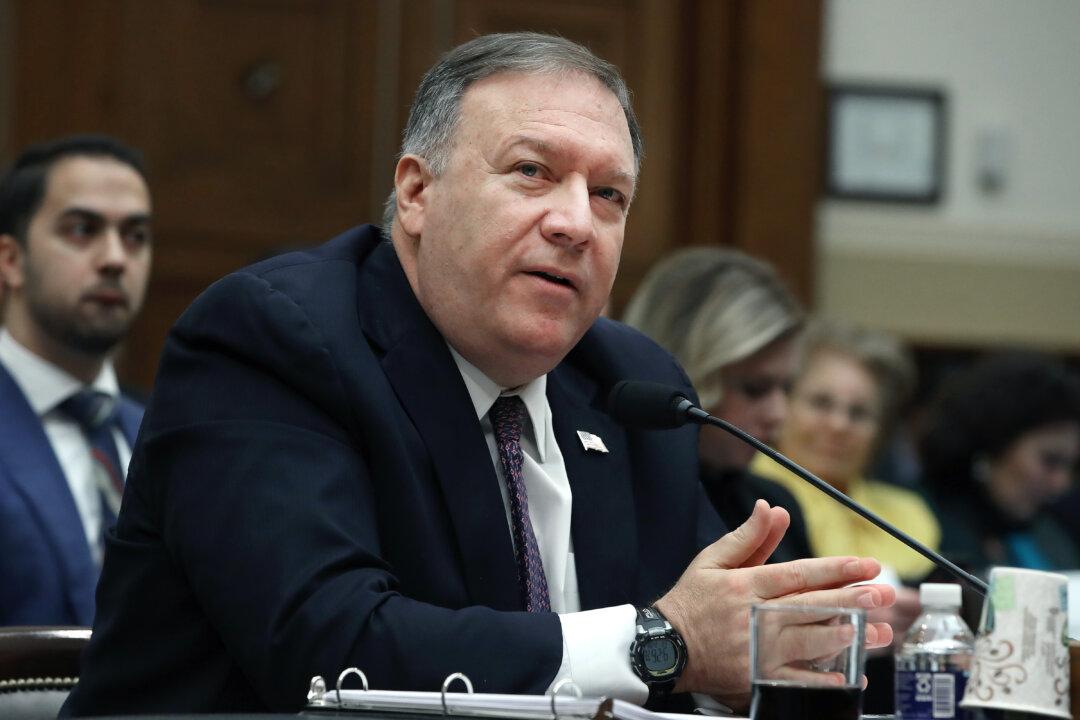Secretary of State Mike Pompeo called out Beijing’s hypocrisy in a statement reacting to a Chinese media outlet’s decision to refuse publishing an op-ed drafted by the U.S. Ambassador to China Terry Branstad.
Pompeo said the outlet, the Chinese Communist Party’s official mouthpiece, People’s Daily, cited “a litany of grievances” while explaining its rationale for rejecting Branstad’s op-ed in a letter addressed to the U.S. Embassy in China.





